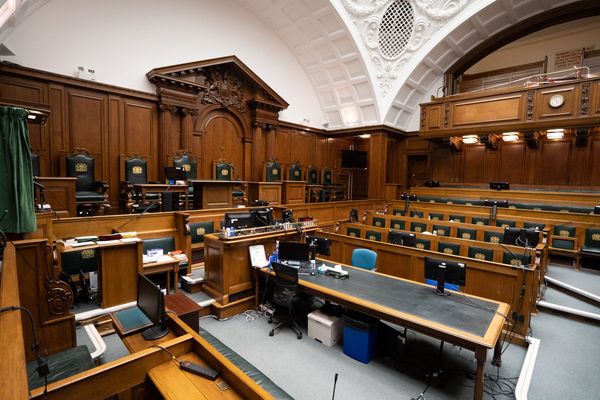
Washington (AFP) - The Biden administration said Wednesday that it still sees a path to a deal with Republicans on avoiding a "catastrophic" US debt default, as negotiators huddled in the White House.
Talks -- which until now had taken place on Capitol Hill -- moved to the White House on Wednesday, as the clock ticked down on what the Treasury Department says is a June 1 "X-date" for the government to run out of money and trigger likely devastating economic upheaval.
There was little concrete sign that the two sides were finding agreement on how to raise the so-called debt ceiling, authorizing the government to borrow more money and keep paying its bills beyond June 1.
But White House Press Secretary Karine Jean-Pierre said talks "remain productive."
"There's a path to move forward," she said."We believe that we can get to a solution here.We can get to a bipartisan, reasonable agreement."
The alternative, Jean-Pierre warned, is "catastrophic impacts in every single part of this country."
"We're talking about millions of jobs lost, devastating retirement accounts, and a recession," she said.
The two sides are divided by fundamentally different visions of how to manage the country's $31 trillion debt.
Biden's Democrats say that Congress needs to approve automatically what's known as a "clean" debt ceiling raise -- that is, to authorize more government borrowing to cover expenses already committed to, but not funded, in the budget.It's essentially an accounting maneuver that Congress performs every year to adjust funding levels.
Republicans, increasingly dominated by a hard right faction loyal to ex-president Donald Trump, have decided to use this generally mundane procedure as leverage to force Biden into accepting severe spending cuts, notably targeting social programs.
Republicans say the cuts are needed to rein in out-of-control government spending.Biden's negotiators say they are ready to discuss taming the budget, but not when Republicans are holding the debt ceiling "hostage."
In the latest negotiating offer, Treasury Secretary Janet Yellen proposed to freeze government spending at current levels, something that she said would reduce the deficit by $1 trillion.
"The president's budget that he put forward actually proposes $3 trillion worth of deficit reduction over 10 years," Yellen said at a Wall Street Journal event on Wednesday.
"In this negotiation, the President has already offered changes that would result in an additional trillion dollars of deficit reduction," she added.
Other areas of compromise from the president include proposals to rescind unspent Covid-19 relief funds, a person familiar with the talks said, speaking on condition of anonymity.
However, Republicans have ruled out accepting White House plans to further tackle the deficit through tax increases on the most wealthy Americans and corporations.
House Speaker Kevin McCarthy, the top Republican in Congress, again ruled out passing a "clean" debt ceiling hike, but also said he thought progress would be possible.
"I am not going to give up.We're not going to default.We're going to solve this problem.I will stay with it until we can get it done," he told reporters.
"But let's be honest about this: We have to spend less than we spent last year.It is not my fault that the Democrats cannot give up on their spending."
The Republicans say their spending plans would cut the deficit by $4.8 trillion over a decade. The White House describes their plan as slashing assistance for the poorest while reinforcing tax cuts for the wealthy passed under Trump.







